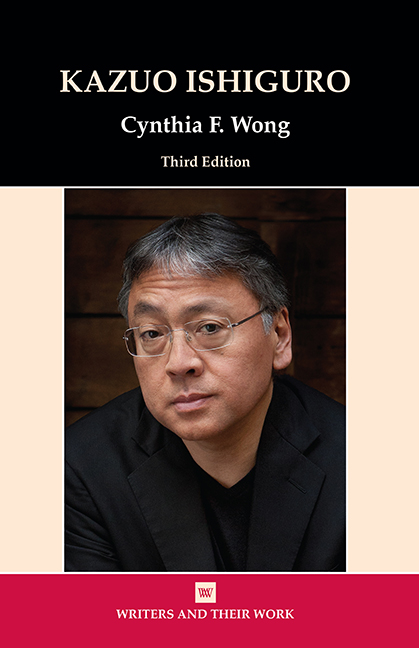Book contents
- Frontmatter
- Contents
- Acknowledgements
- Preface to the Third Edition
- Biographical Outline
- Abbreviations and References
- Introduction
- 1 Ishiguro as an International Writer
- 2 Reading the Novels
- 3 Narrative and Memory: A Pale View of Hills
- 4 Deflecting Truth in Memory: An Artist of the Floating World
- 5 Disclosure and ‘Unconcealment’: The Remains of the Day
- 6 Seizing Comprehension: The Unconsoled
- 7 Odd Failures of Guardianship in When We Were Orphans and Never Let Me Go
- 8 Parody and Performance in Nocturnes
- 9 Cloaked Memories in The Buried Giant
- Notes
- Select Bibliography
- Index
5 - Disclosure and ‘Unconcealment’: The Remains of the Day
- Frontmatter
- Contents
- Acknowledgements
- Preface to the Third Edition
- Biographical Outline
- Abbreviations and References
- Introduction
- 1 Ishiguro as an International Writer
- 2 Reading the Novels
- 3 Narrative and Memory: A Pale View of Hills
- 4 Deflecting Truth in Memory: An Artist of the Floating World
- 5 Disclosure and ‘Unconcealment’: The Remains of the Day
- 6 Seizing Comprehension: The Unconsoled
- 7 Odd Failures of Guardianship in When We Were Orphans and Never Let Me Go
- 8 Parody and Performance in Nocturnes
- 9 Cloaked Memories in The Buried Giant
- Notes
- Select Bibliography
- Index
Summary
For I always say either too much or too little, which is a terrible thing for a man with a passion for truth like mine.
In the best known and most discussed of his novels, Ishiguro cleverly weaves together the personal and the political, the historical and universal themes of humanity. Like Etsuko and Ono, Stevens the narrator takes the reader into his confidence and promises a perspective of clear meditation. But, Stevens's declared enlightenment is a false one and promises nothing in the way of a spiritual consolation. Has Stevens mulled through these events long before and frequently enough so that what emerges now is not discovery so much as a private confession of those events? If so, what act of forgiveness does Stevens seek now in a world no longer inhabited by Hitler and influenced by the well-intentioned but misguided political involvement of his Lord Darlington? Adam Zachary Newton insightfully discusses how Stevens produces ‘the appearance of a world which emerges from behind the one he discreetly and courteously escorts us through; we see that world, mostly unbeknownst to him, through a sort of discursive double exposure’. Stevens produces something like two distinct stories of his life: set in two time periods – the past between the world wars and the present as he undertakes his holiday – Stevens's narrative incorporates both his knowledge of and his blindness to the events he recounts.
Themes of memory, temporal dislocation, and emotional estrangement continue to haunt Ishiguro's work. Here, Stevens is simultaneously as unreliable and as sympathetic a narrator as either Etsuko or Ono. Their stories promised a mode of detection at work: they both set out to understand the forces of the past as they faced the end of their lives and they sought to assemble some puzzle for this self-comprehension. But they also end their stories with keen but unspoken acceptance that the understanding is now futile knowledge. Believing that it is now too late for him to pursue romantic love or familial life in any conventional sense, Stevens at the end of the novel returns from his holiday to Darlington Hall, now owned by an American named Farraday, even more committed to living out the remainder of his days as a devoted servant to his master. What, then, has his journey through the past taught him?
- Type
- Chapter
- Information
- Kazuo Ishiguro , pp. 52 - 65Publisher: Liverpool University PressPrint publication year: 2019

